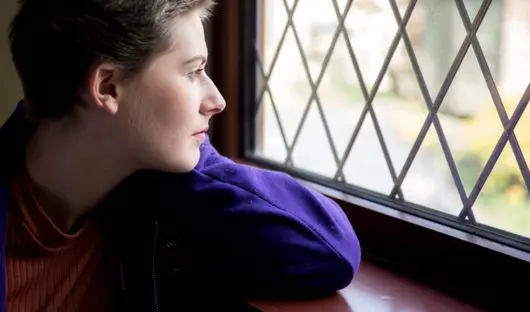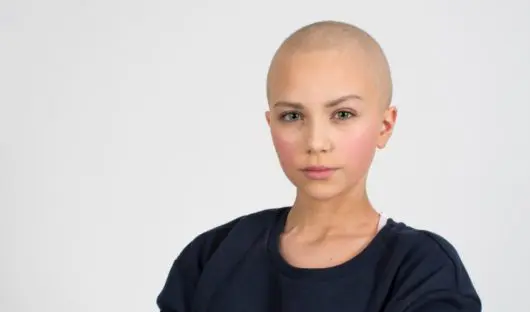Will cancer and treatment affect my fertility?
Having children might be the last thing on your mind – or the thought of losing the option might be devastating. This article talks about how cancer treatment can affect your fertility and how fertility preservation treatment could help.
Please note: We strive to make our information inclusive and accessible. We understand that people identify differently and, for some, fertility could be a triggering subject. We have tried to move away from talking about treatment for men and women, and have also tried to degender reproductive organs – not referring to them as male or female. If you have any thoughts about what we’re doing well on or how we can do better, please get in touch at informationservice@younglivesvscancer.org.uk.
How will I be affected?
It will depend on your individual situation, such as the type of cancer treatment you have and which parts of your body are involved.
Your ovaries can be affected by some types of chemotherapy, radiotherapy, surgery or hormone treatment, damaging your eggs. This can lead to early menopause. If your womb (uterus) or vagina is being treated, this can also cause fertility problems.
Sperm production can be reduced or stopped by some kinds of chemotherapy and radiotherapy. This may be temporary, but for some it is permanent.
Your sex drive, changes to your vagina, or ability to have an erection can also be affected by chemotherapy, radiotherapy, hormone treatment or surgery. It depends on the treatment and what part of your body is involved.
It’s very normal to feel less confident and have less interest in sex while you’re having treatment, or are dealing with the after-effects. There are some great organisations who can help you to feel better about your body and regain some confidence so if you feel this way, make sure you check them out.
What can I do about my fertility?
Fertility preservation treatment might allow you to have children in the future. You might have heard of freezing sperm or eggs – these are both types of fertility preservation treatment. It’s something you should be offered if your treatment is likely to affect you.
Being confronted with this dilemma after your cancer diagnosis, and at this stage of your life, must feel wrong and unfair. Being asked to make a decision about having children in the future and whether you want to preserve your fertility, especially if you haven’t really thought about it, could feel overwhelming. You understandably might not feel ready to make this decision.
Try to talk it out with people you love and trust. You could also talk to your nurse or doctor, as they can help you understand more about the possibilities. Having this open and frank discussion, and helping you access appropriate fertility preservation treatment, is seen as an important part of good cancer care.
If you’re in a committed relationship, it’s your choice whether you talk to your partner about this or not but whatever the outcome, make sure you are doing what feels right for you. There’s a lot to factor in – sometimes it needs to happen quite quickly before your cancer treatment starts, which means you might have to make a decision with limited time.
What does fertility preservation treatment mean for me?
If you have testicles, you might be able to freeze some of your sperm in case you want to have biological children in the future.
If you have ovaries, you might be able to save some of your eggs. These frozen eggs can be used to try for a child in the future. Freezing an embryo (an egg that is fertilised with sperm) may be another option. If you freeze an embryo, permission is needed from both partners at every stage, including if you want to use it in the future.
Sometimes it is possible to freeze tissue from an ovary that contains immature eggs. This tissue can then be placed back in your body after cancer treatment, to try and get your ovaries working again. Ovary tissue freezing is only available in a few centres in the UK. If you want to find out more, ask your cancer team whether this option is available. It’s still seen as a technology that’s in development.
What if I’ve already had my cancer treatment, or am in the middle of it?
It’s hard to know what will happen for each individual. Whether you’re able to have children will depend on the type of cancer and what kind of treatment you had for it. If you’re in doubt, you can have fertility tests after your treatment is finished. You can ask your GP or cancer team to arrange this.
If you feel your fertility was never discussed with you properly and you’re mid-treatment, make sure you go back to your consultant or someone on your team that you trust. It’s important that any questions or concerns you have are addressed. There are lots of organisations who help people with fertility problems, so don’t feel like you have to go it alone.
You might also like to read
Contacts for your emotions and mental health
Useful organisations, resources, apps and communities for emotional and mental health support.
Find out more
How bad will treatment make me feel?
Everyone reacts differently to treatment. Here are ways to combat any side effects.
Find out more
For teens and young adults
Every young person is unique. That's why we provide a service to fit your lives and aspirations.
Find out more